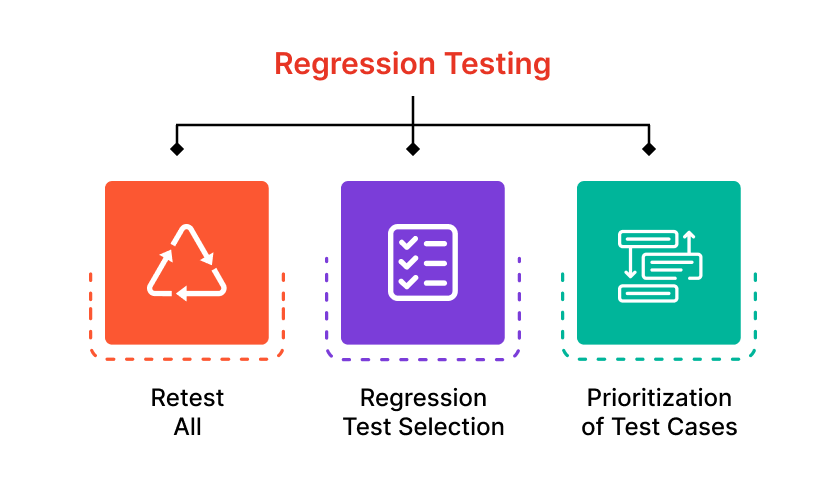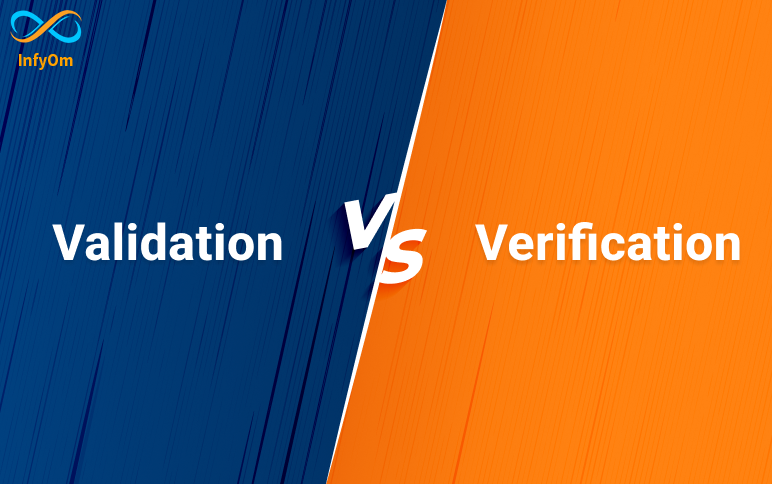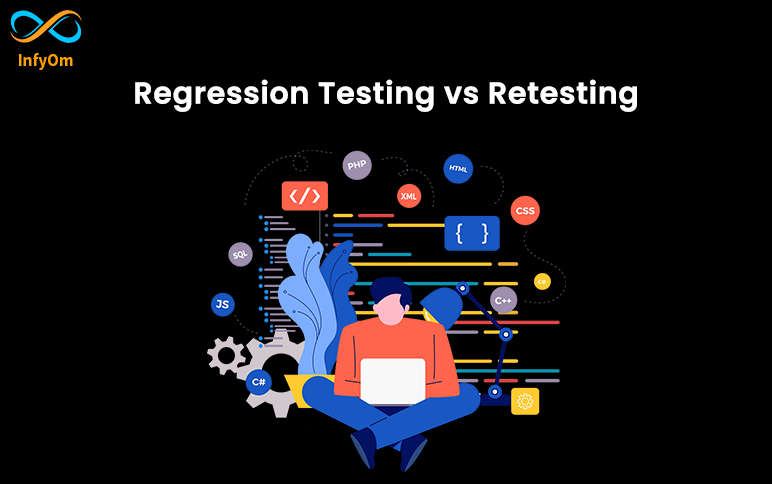Regression Testing Techniques:
Retest All:
Retest All In this technique, the entire test suite is executed again to verify that no existing functionality has been affected by recent code changes. It’s a comprehensive but time-consuming approach.
Selective Regression Testing:
Selective Regression Testing This technique involves selecting a subset of test cases from the existing test suite that is most likely to be affected by the code changes. It’s a more efficient approach compared to retesting all test cases.
Test Case Prioritization:
Test Case Prioritization Test cases are prioritized based on factors like their likelihood of failure, criticality, and importance to the application. High-priority test cases are executed first to quickly identify issues.
Test Automation:
Test Automation tools are used to create and execute test scripts that can be easily rerun whenever there are code changes. Popular automation tools include Selenium, Appium, and JUnit for Java applications.

Regression Testing Tools:
Selenium:
Selenium is one of the most popular open-source automation testing tools for web applications. It supports multiple programming languages and browsers and allows testers to create robust regression test suites.
Appium:
Appium is an open-source tool for automating mobile applications on Android and iOS platforms. It can be used for regression testing of mobile apps.
JUnit:
JUnit is a widely-used testing framework for Java applications. It’s especially useful for unit and regression testing in the Java ecosystem.
TestNG:
TestNG is another Java-based testing framework that offers more advanced testing features compared to JUnit, making it suitable for regression testing.
Jenkins:
Jenkins is a popular open-source automation server that can be used to automate the execution of regression test suites. It integrates with various testing tools and can schedule test runs based on code changes.
Postman:
Postman is a popular tool for testing RESTful APIs. It can be used for API regression testing to ensure that changes in the API do not break existing functionality.
TestRail:
TestRail is a test management tool that helps teams organize and manage their regression test cases, track test results, and collaborate on testing efforts.
JIRA:
JIRA, developed by Atlassian, is an issue and project tracking tool that can be used for managing and tracking regression test cases and defects.
Travis CI:
Travis CI is a continuous integration tool that can be used to automate the execution of regression tests whenever code changes are pushed to a version control system like GitHub.
CircleCI:
CircleCI is another continuous integration and continuous delivery (CI/CD) platform that supports automated regression testing as part of the software development pipeline.
The choice of regression testing technique and tool depends on the specific requirements of your project, the nature of the application, and the resources available. It’s essential to select the most appropriate combination to ensure effective regression testing and maintain the quality of your software.



